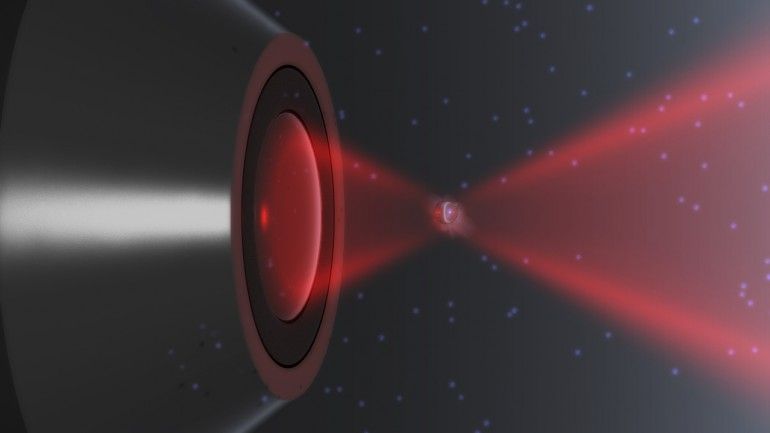Heidi Hoopes — Gizmag
It may be a little late for April Fool’s, but some skepticism is nonetheless warranted when reading that researchers have shown nanoparticles to disobey a fundamental law of physics which dictates the flow of entropy and heat in, it was believed, any situation. Specifically, researchers from three universities theoretically proposed then demonstrated that a nanoparticle in a state of thermal non-equilibrium does not always behave as larger particles might under the same conditions, with implications for various fields of research.
The second law of thermodynamics is the one that makes perpetual motion machines impossible. It states that the entropy – the measure for the disorder of a system – of any isolated system cannot decrease spontaneously, with the system evolving towards the state of maximum entropy (favoring disorder). The team has shown that a nanoparticle trapped with laser light temporarily violates this law. This seeming violation of universal law is transient, something that the researchers first derived as a mathematical model of fluctuations expected at the nanoscale.
